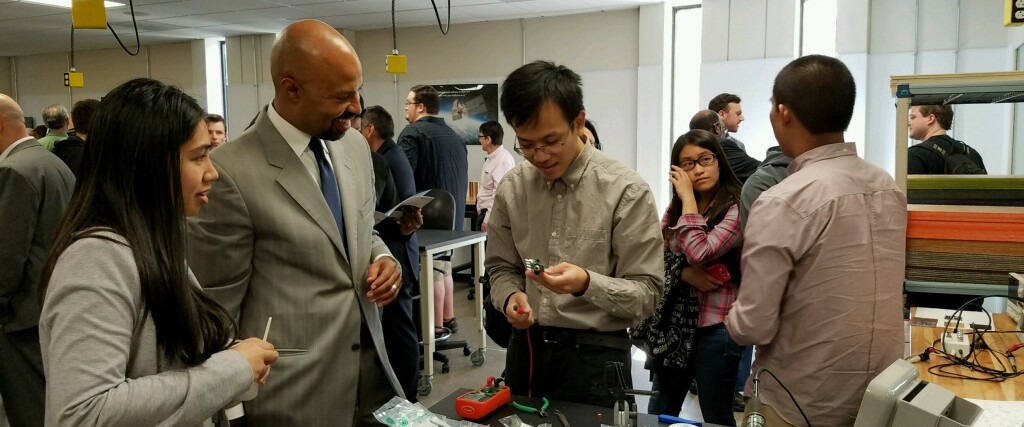Elon Musk, Steve Jobs and Richard Branson are a few of the preeminent innovators of our time, who have changed the game and redefined the human experience at the outset of the 21st century. Where will the next generation of great entrepreneurs emerge from?
It turns out, there is an incredible untapped reservoir of potential innovators: African Americans, Hispanics and women with limited access to resources. In 2012, only 14% of U.S. bachelor’s degrees in STEM (science, technology, engineering and math) went to underrepresented students, though they comprise 33% of the college-age population.
The Base 11 STEM Entrepreneur Accelerator program seeks to provide a path to entrepreneurial success for these students at various community colleges by bringing them Ivy League-quality resources, training, mentorship and connections. Through the program, students gain access to:
Resources. The STEM Entrepreneur Accelerator program brings an Innovation Center to the community college campus. There, students can use a Fab Lab — short for fabrication laboratory — like those originally developed by MIT researchers. In the Fab Lab, tools including 3D printers and laser cutters enable students to design and produce almost anything they can imagine.
Training. According to the American Society of Engineering Education, 40 percent to 50 percent of engineering students switch to other majors or drop out, often due to the difficulty of the curriculum. Giving students experiential education has proven to dramatically increase student retention in difficult classes like calculus, physics, and entry-level engineering.
The STEM Entrepreneur Accelerator program provides that experiential training. Through a 16-week curriculum offered at the community college, students learn about the entrepreneur’s mindset; rapid prototyping in the Fab Lab; leadership in the 21st century; developing and pitching a product or business plan; sales and marketing; and productivity strategies of super-achievers. At the culmination of the training program, student will not only have gained practical business and engineering skills, but they will have the opportunity to compete in regional and national pitch competitions to win seed money to launch or grow their business.
Mentorship. Through Base 11, community college students have access to paid internships that include one-on-one mentorship from some of the nation’s top research institutions including the California Institute of Technology (Caltech), University of Southern California; University of California, Irvine; and the Smithsonian National Air & Space Museum. Mentorship has been identified as a key strategy for helping attract and retain students in STEM fields, and according to the American Association of University Women, it’s a particularly powerful tool for “individuals who haven’t historically participated in these areas — such as women and underrepresented minorities.”
Connections. The best innovators don’t work in a silo. Through the STEM Entrepreneur Accelerator, students receive access to over 400 mentors, a monthly video broadcast training from Base 11 STEM headquarters. Additionally, students receive full access to technical assistance, venture funding, and incubation and other resources available through our partner, UCI Applied Innovation.
As we connect these promising students with powerful resources, training, mentorship and network, I can only imagine what they will achieve, and how it might change all of our lives.
Do you have an interest in helping us develop the STEM entrepreneurs of the 21st century? Reach out to Base 11 to find out how you can partner with us!

